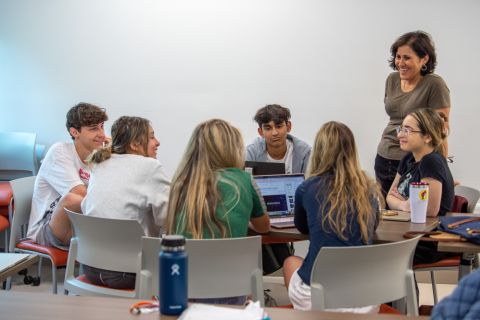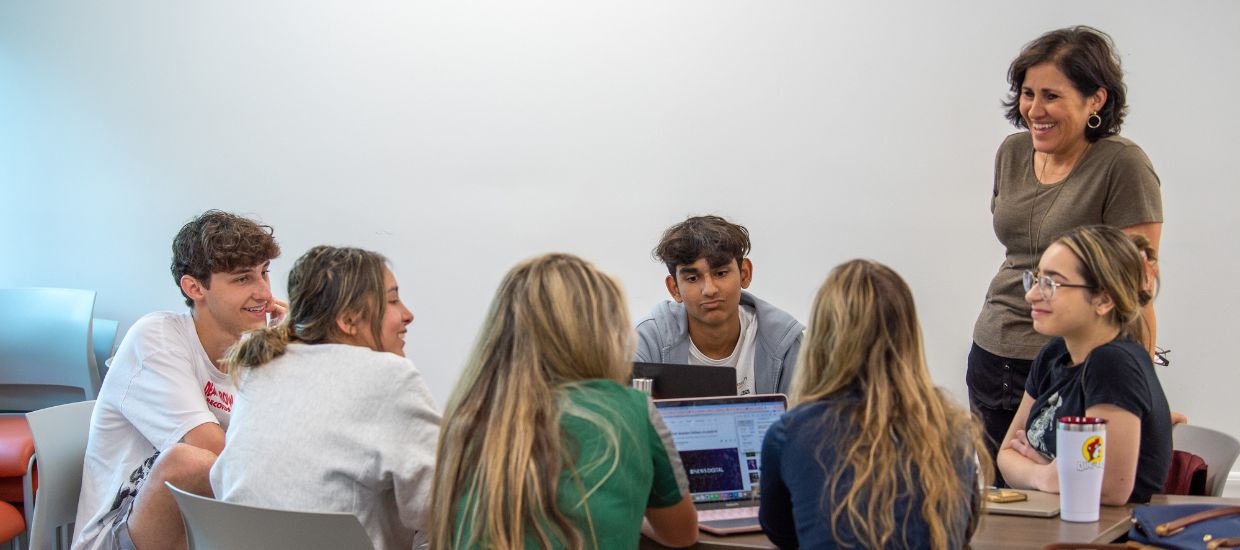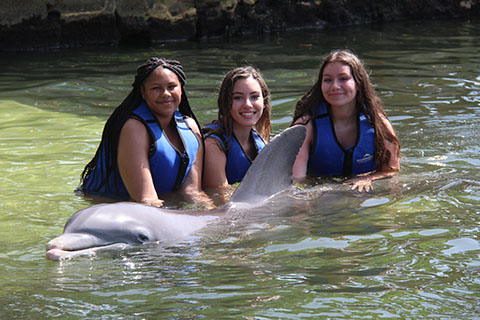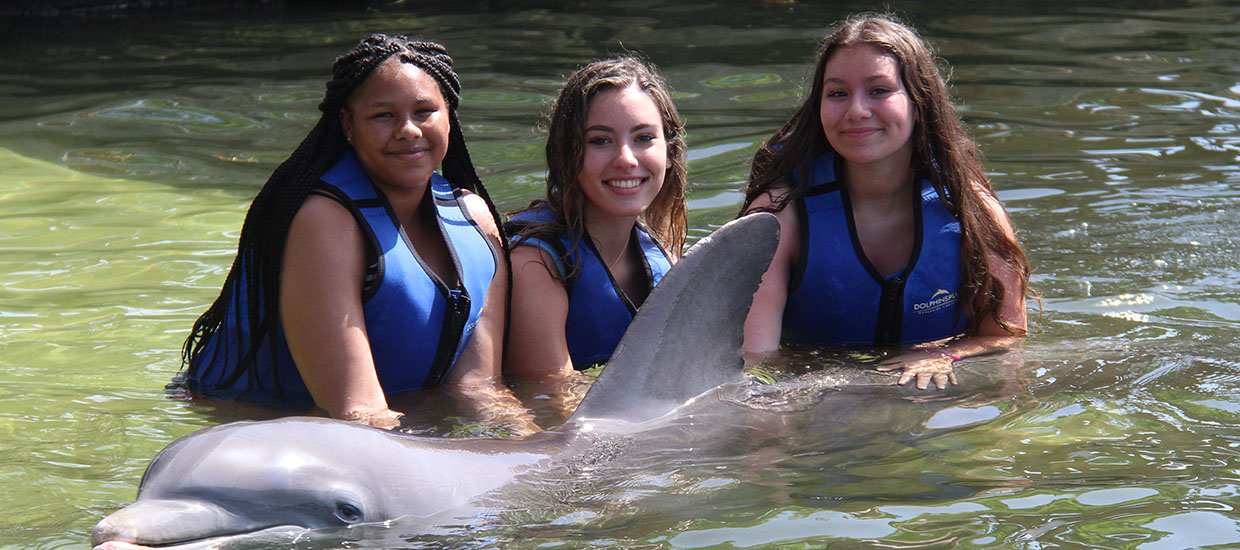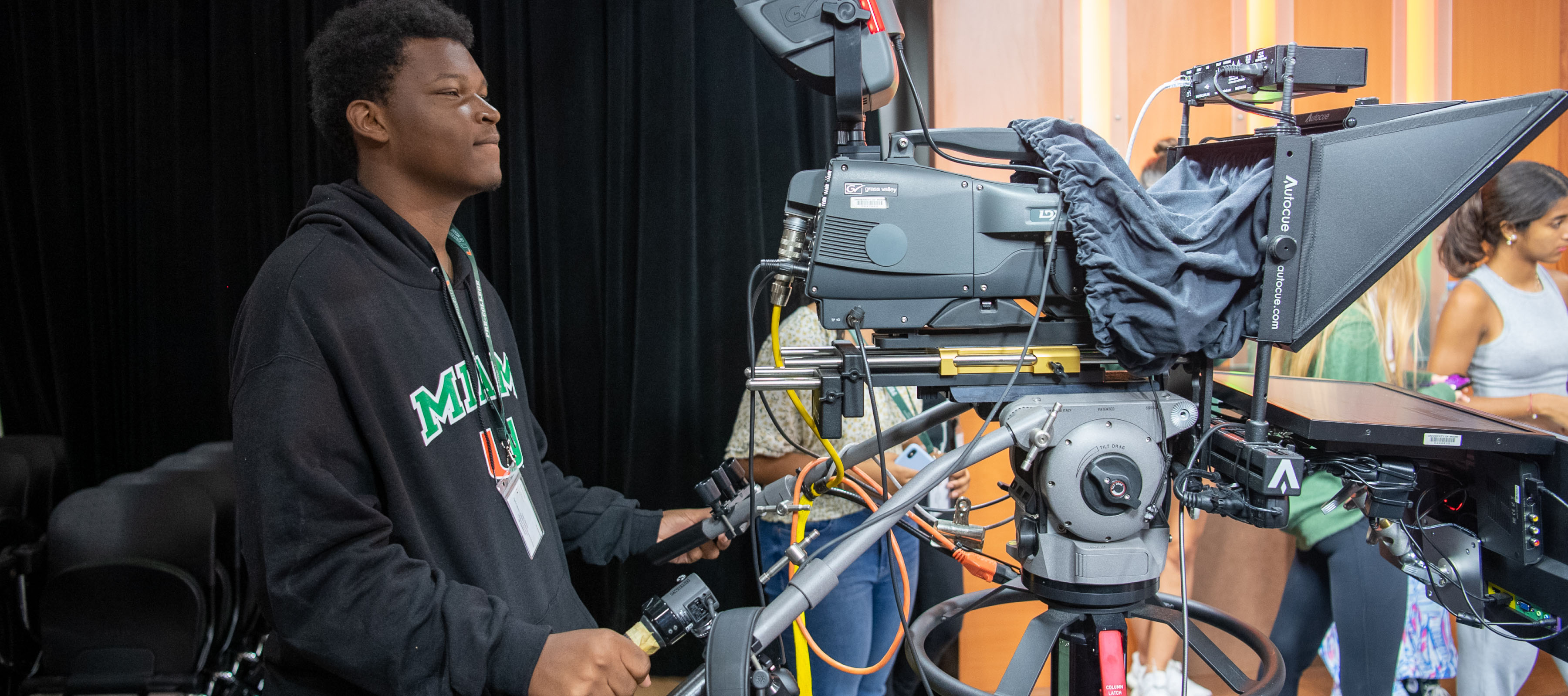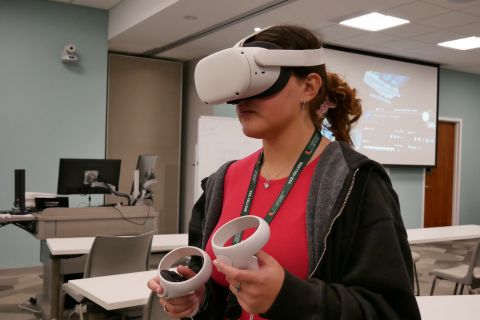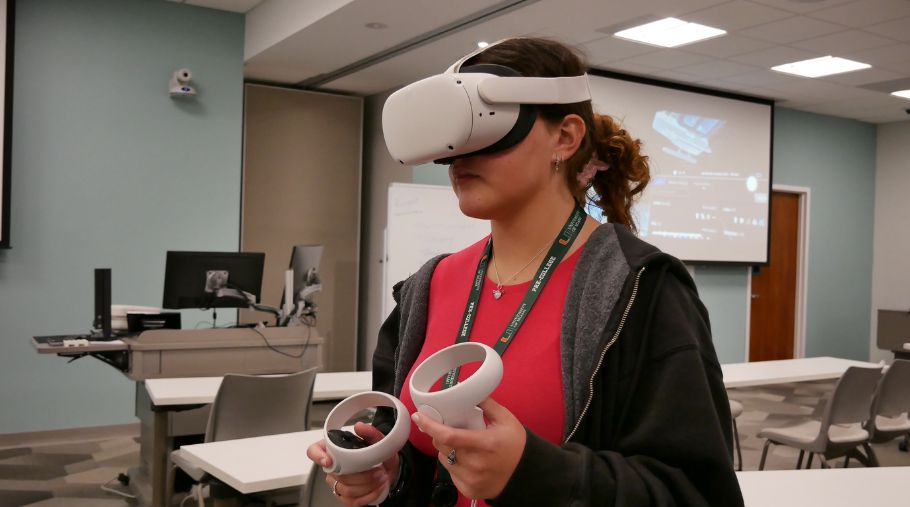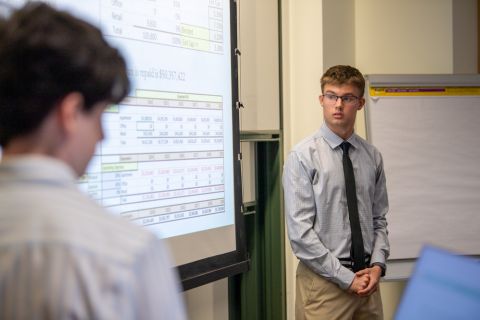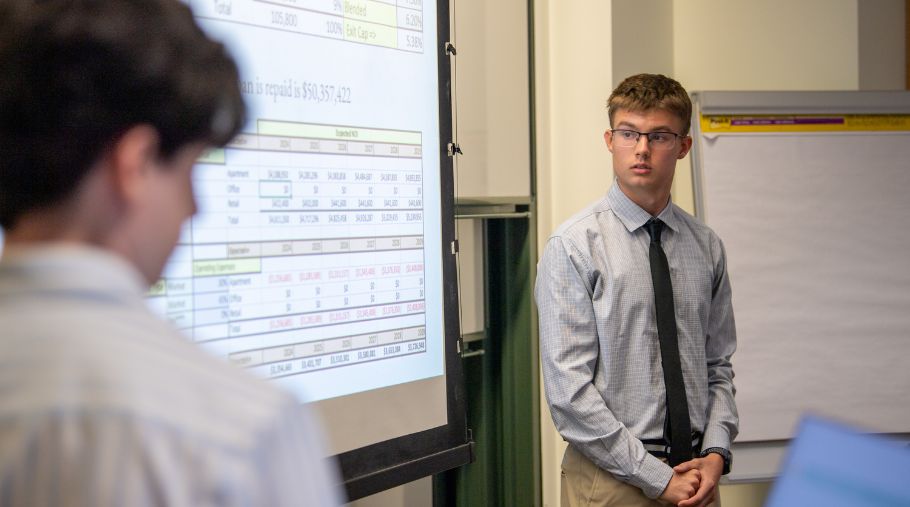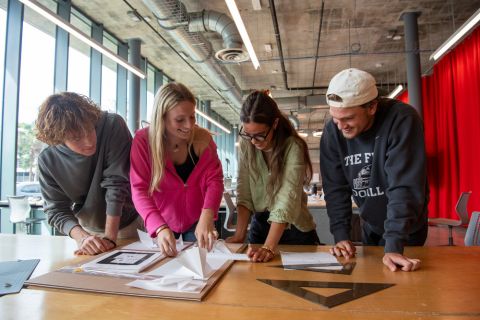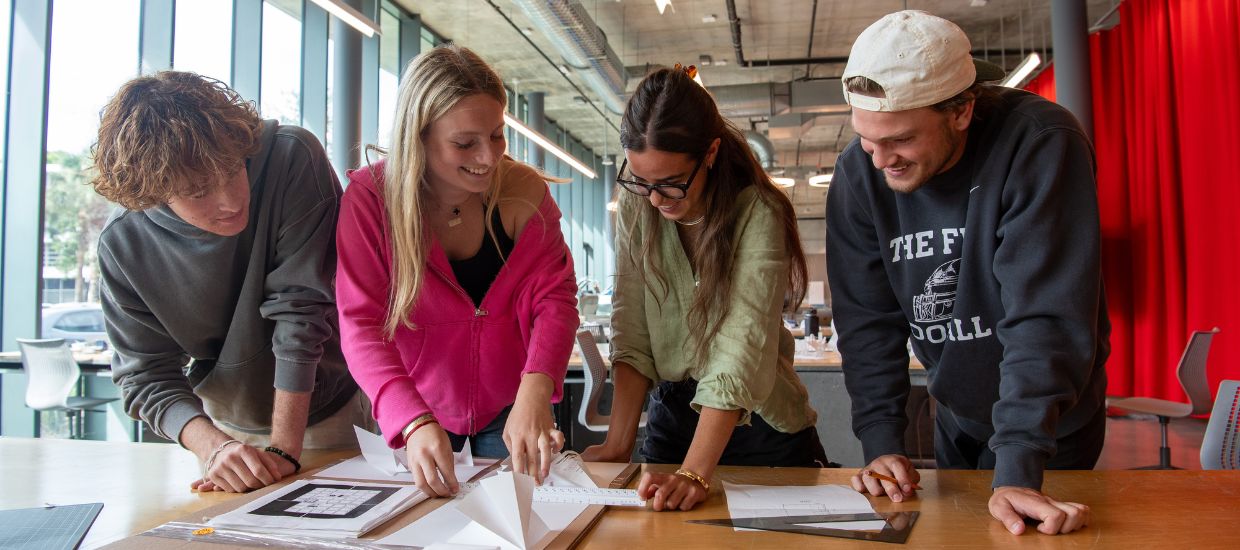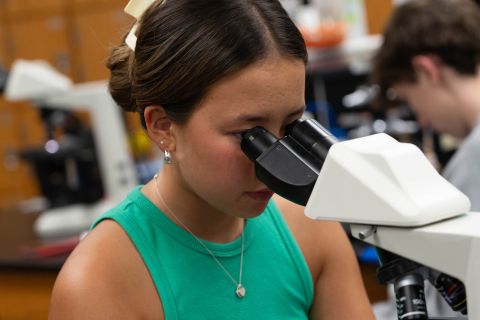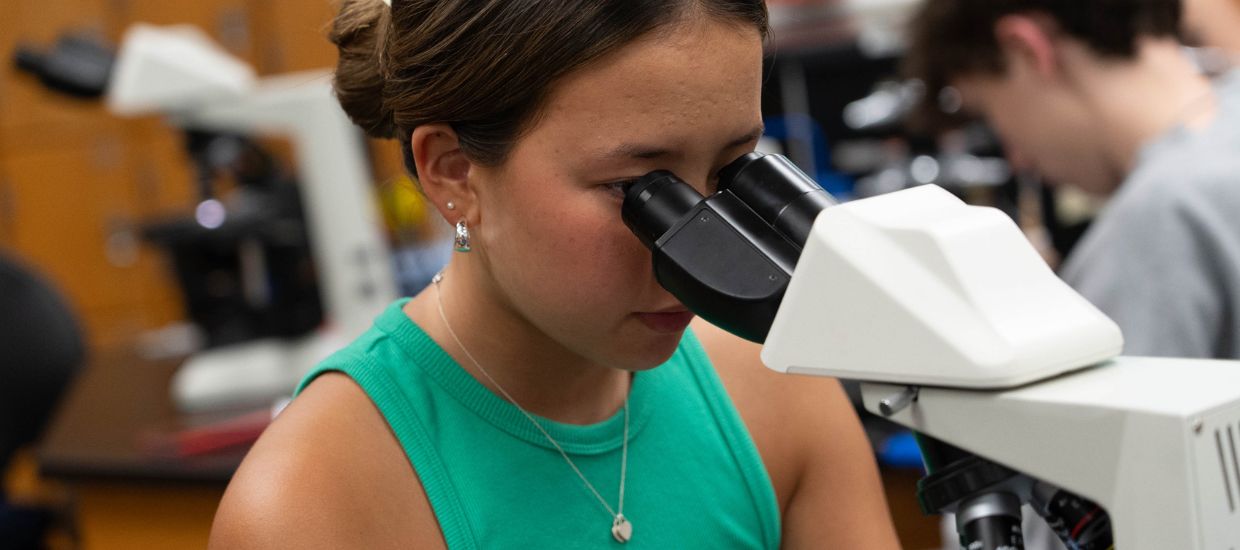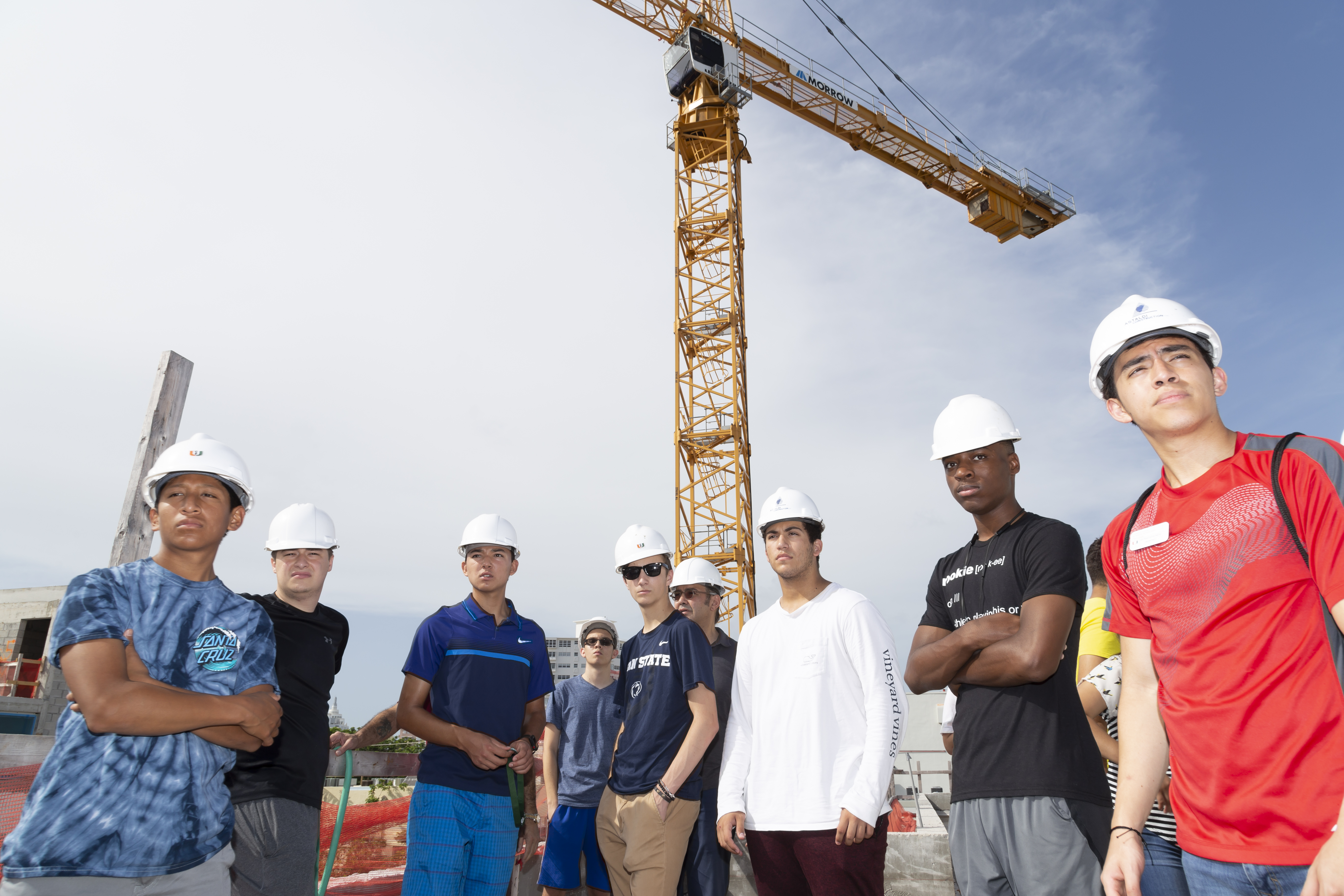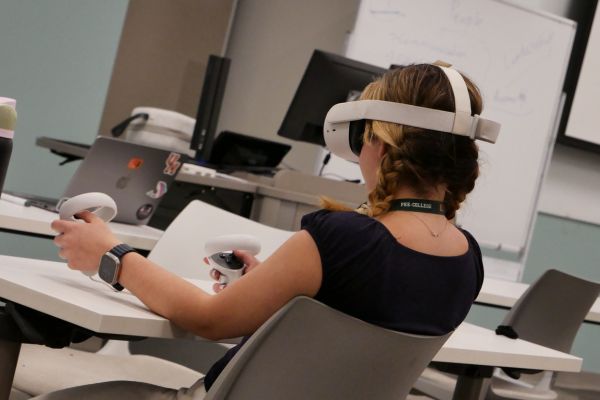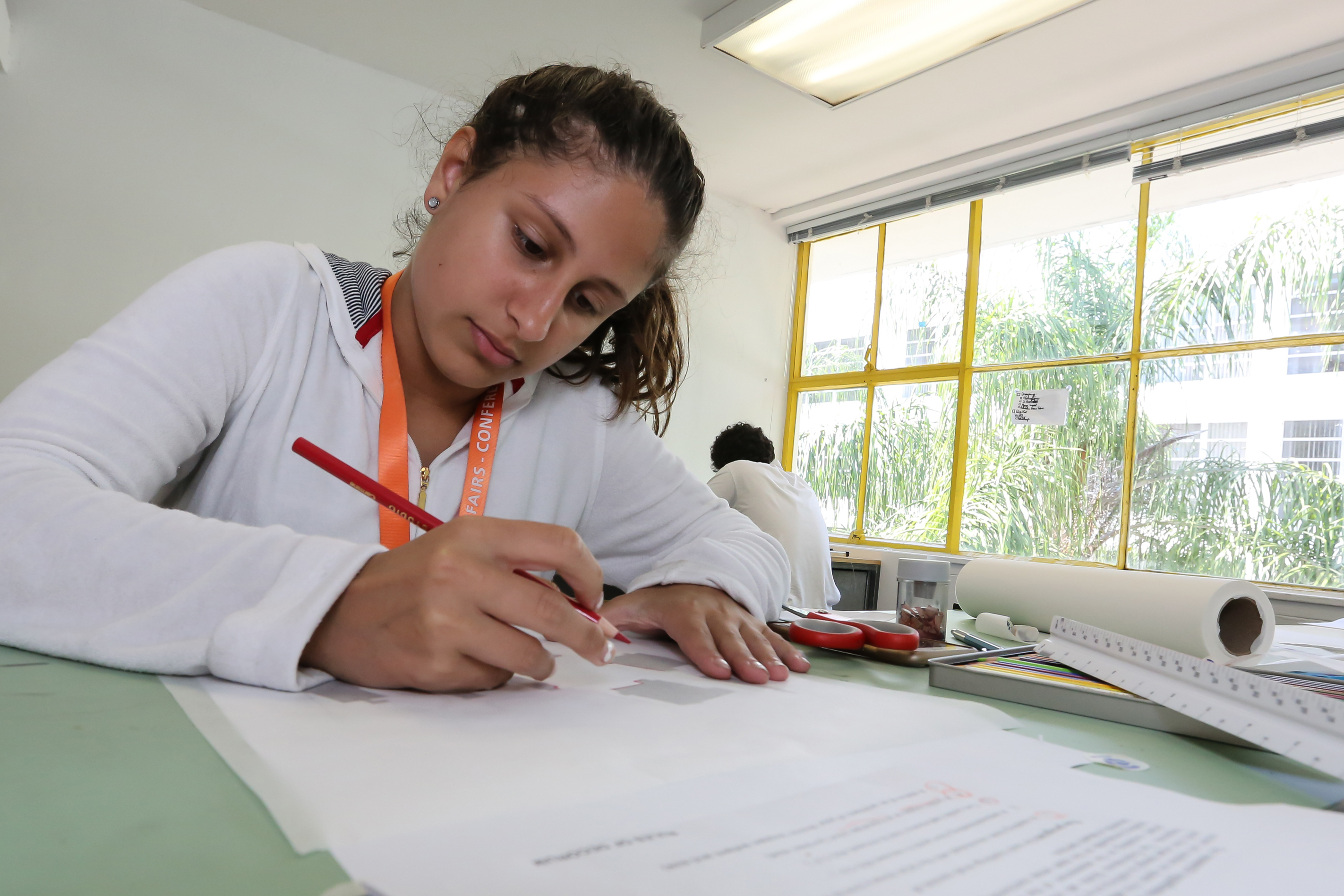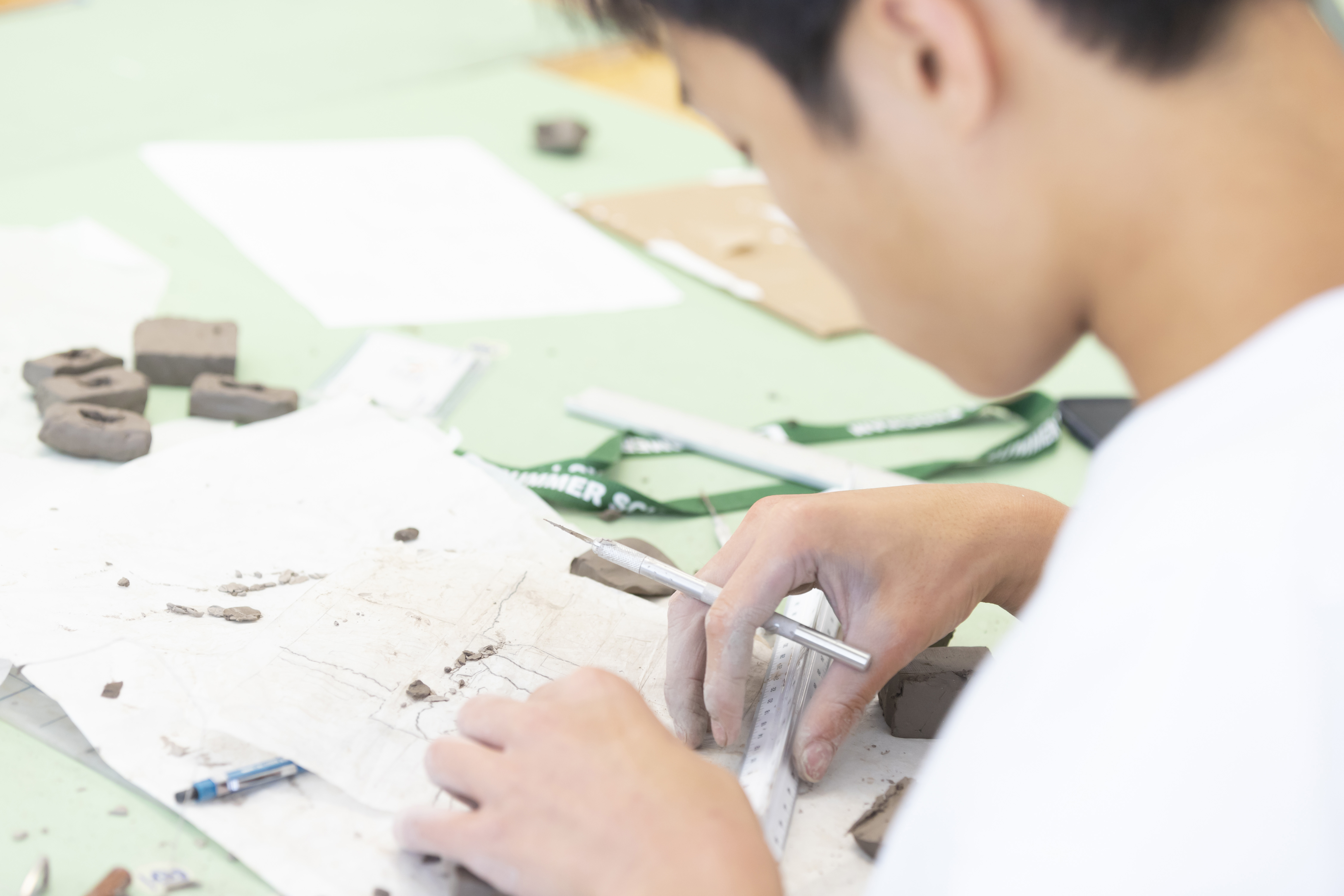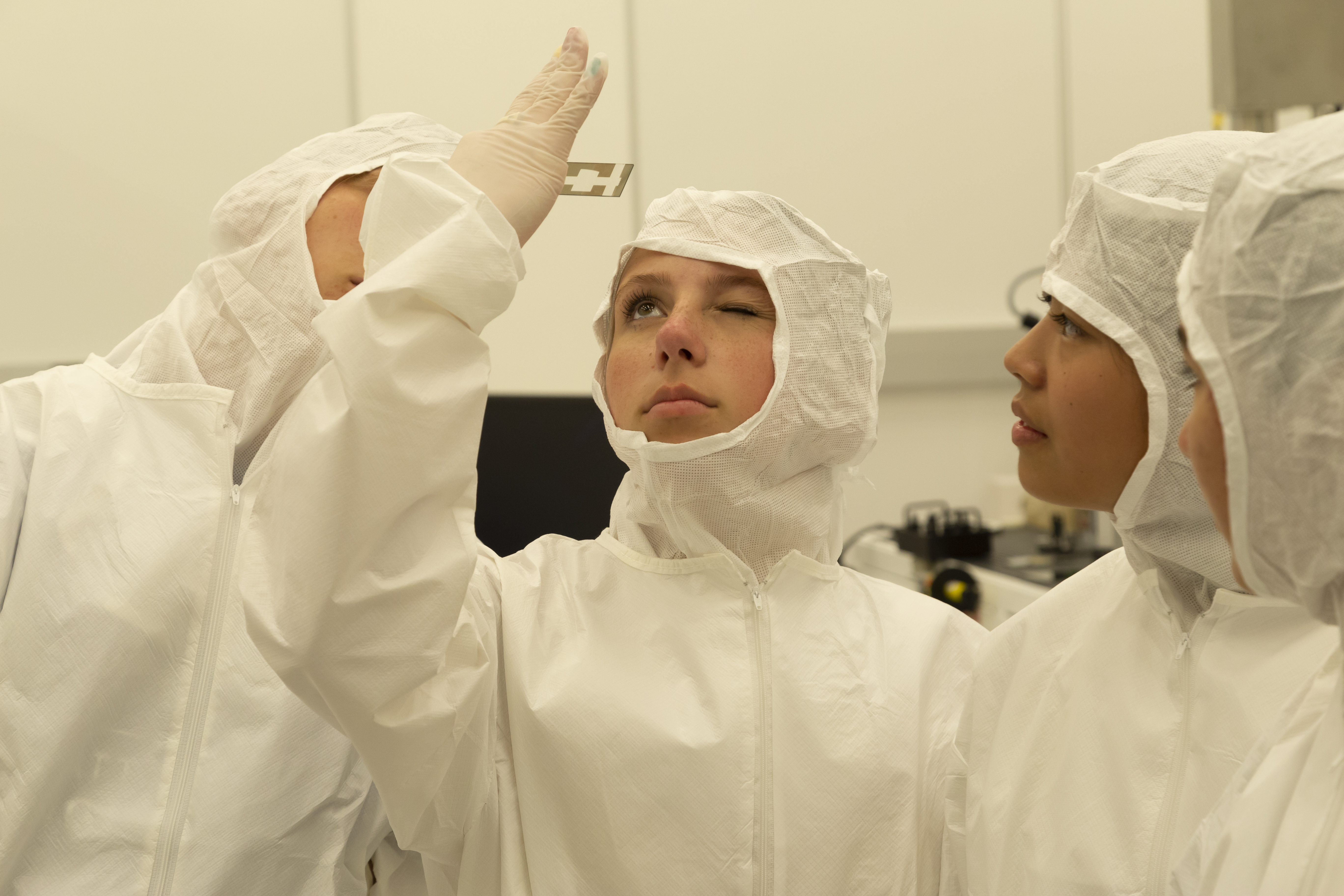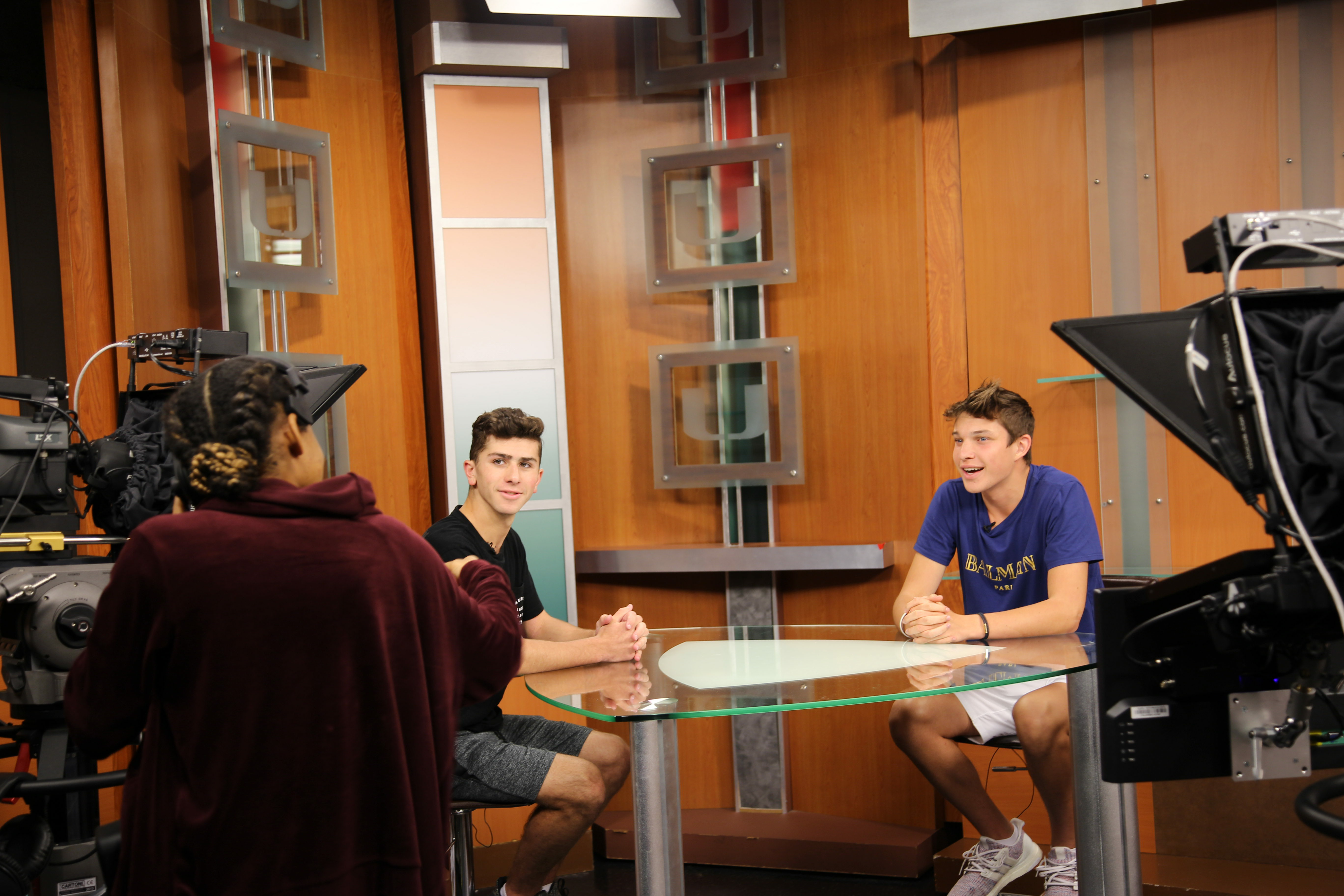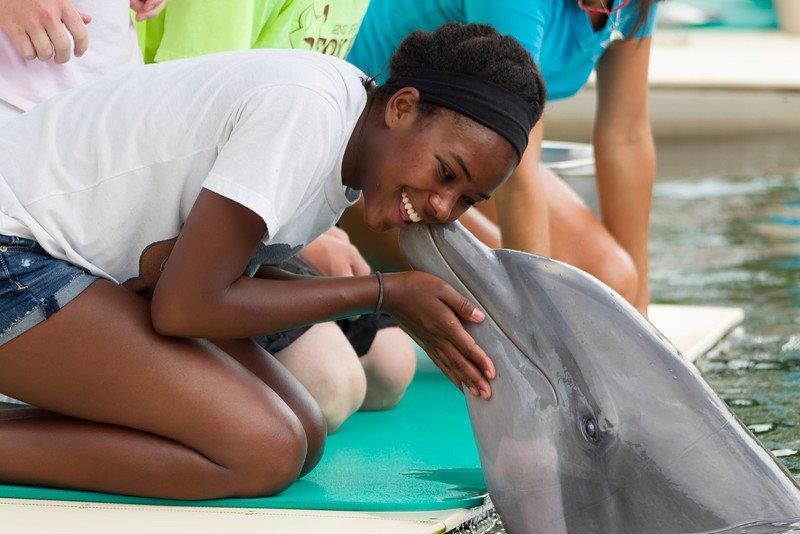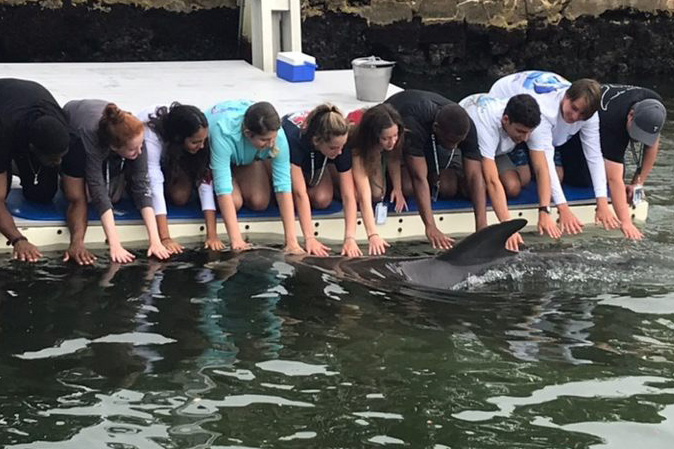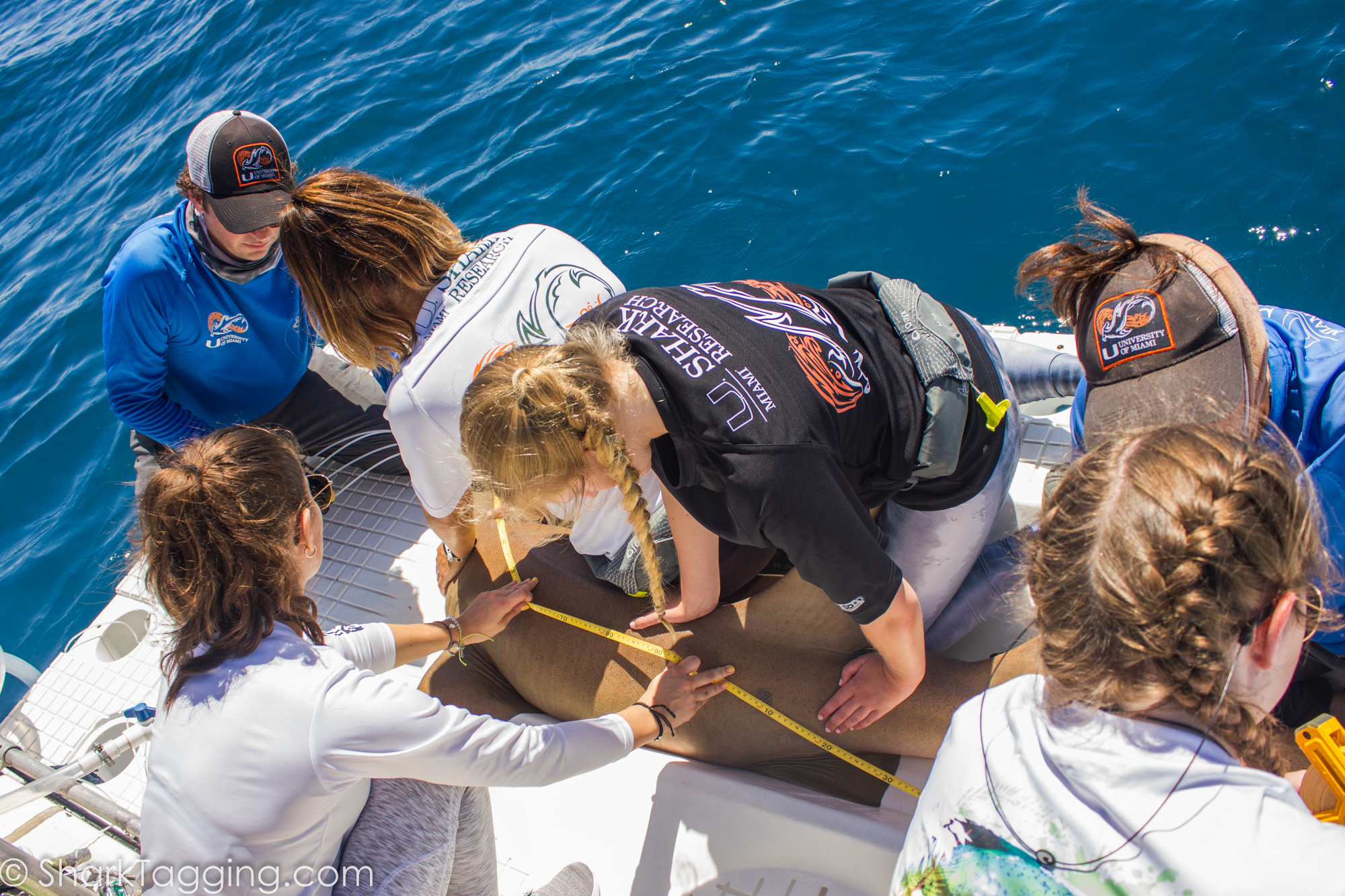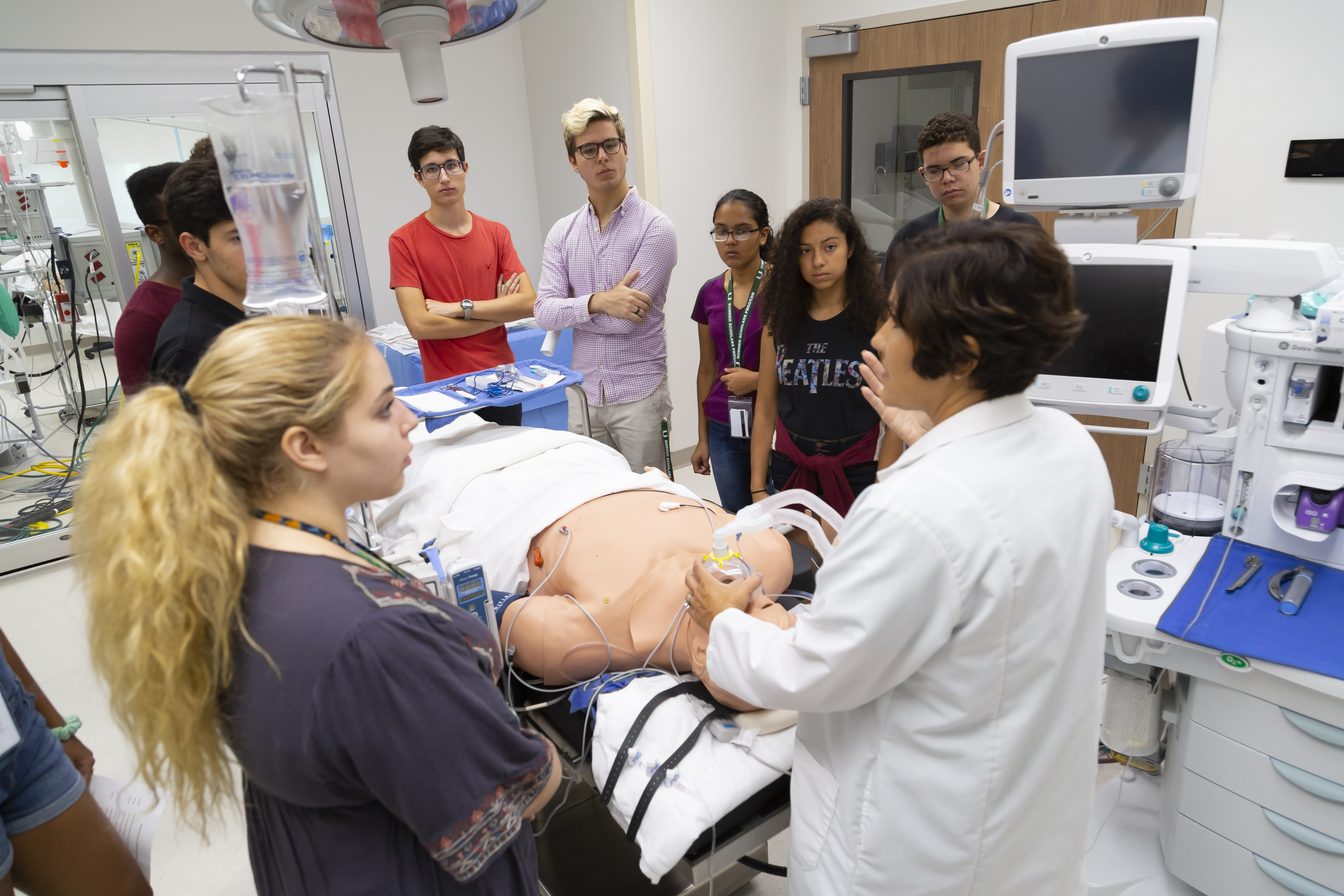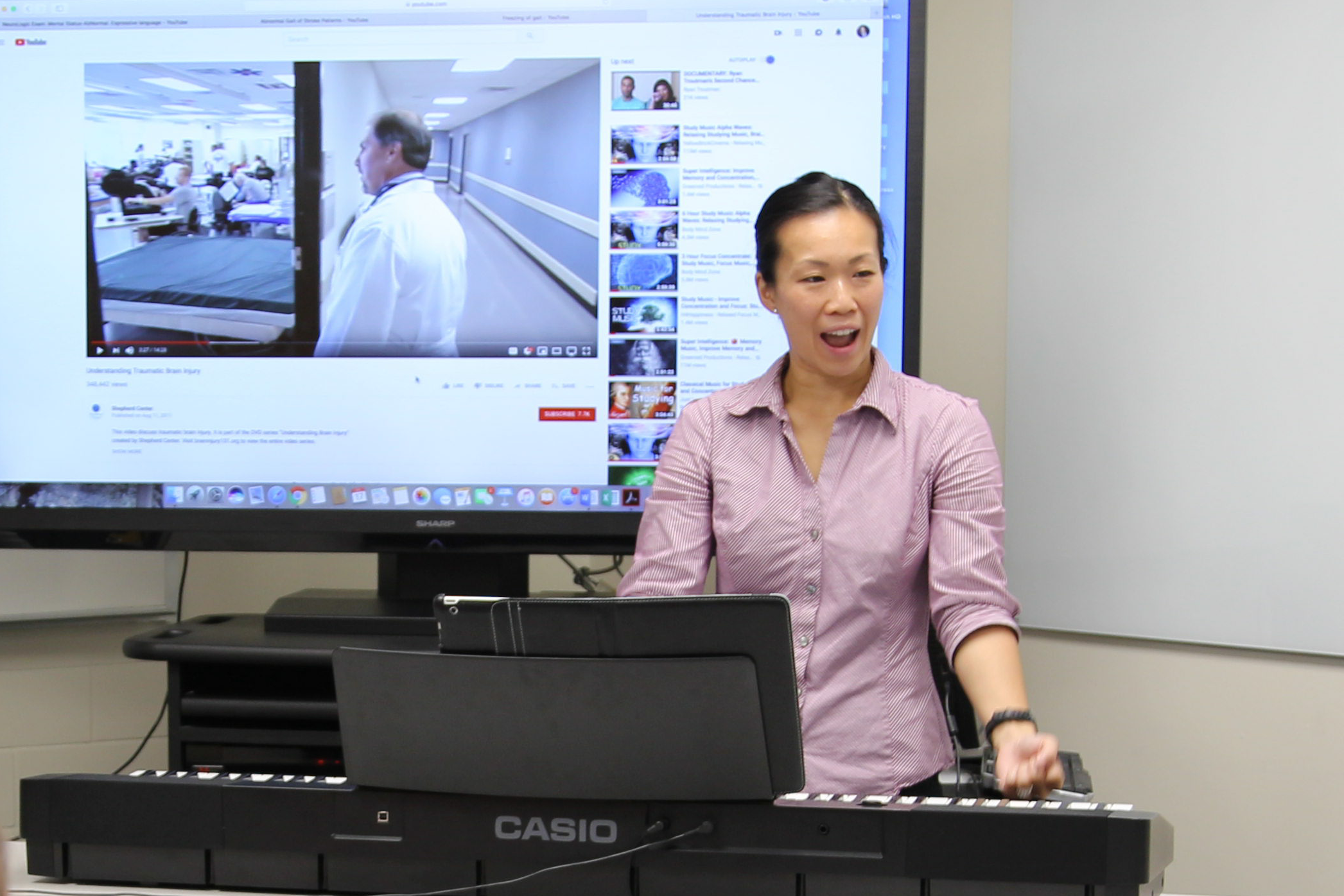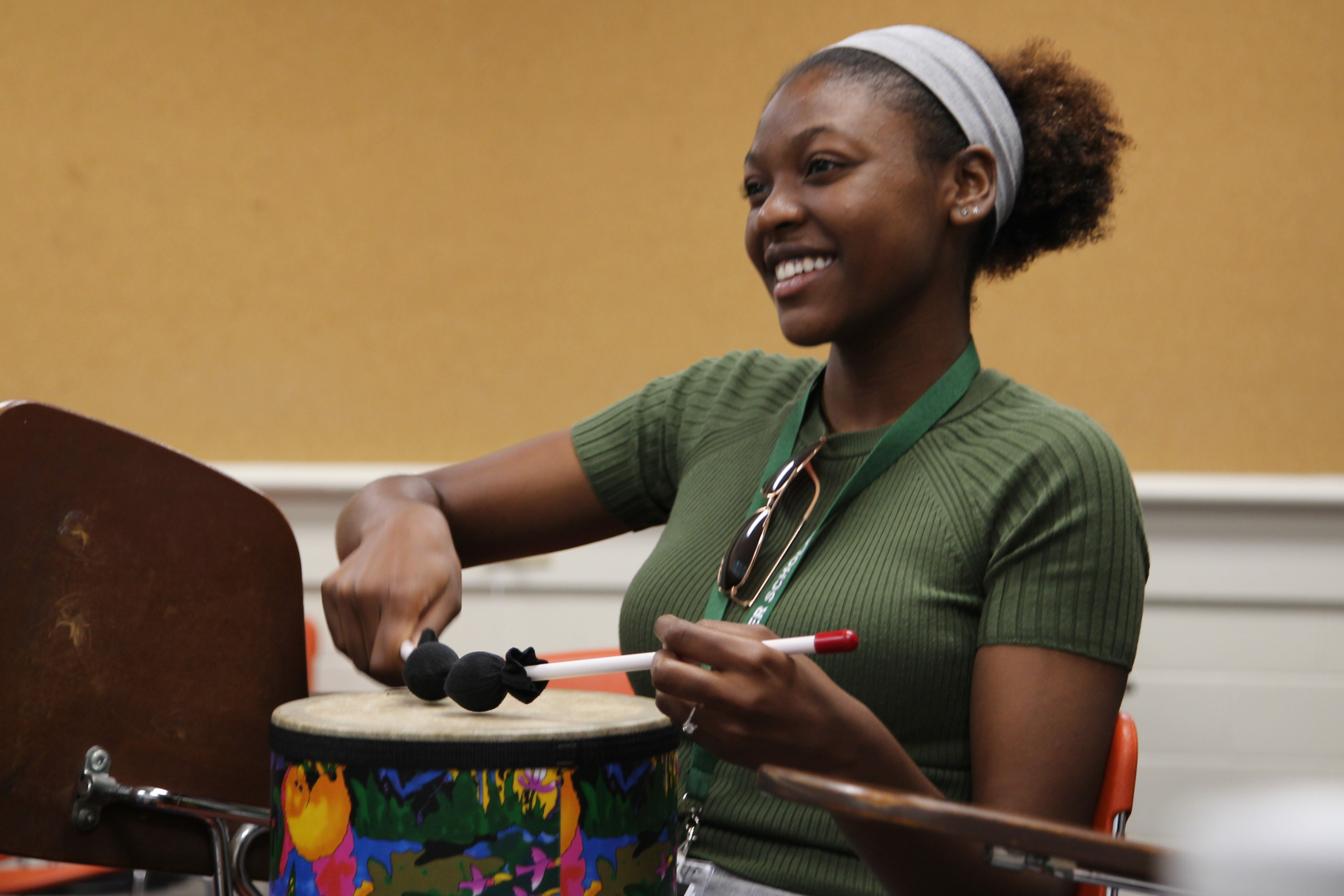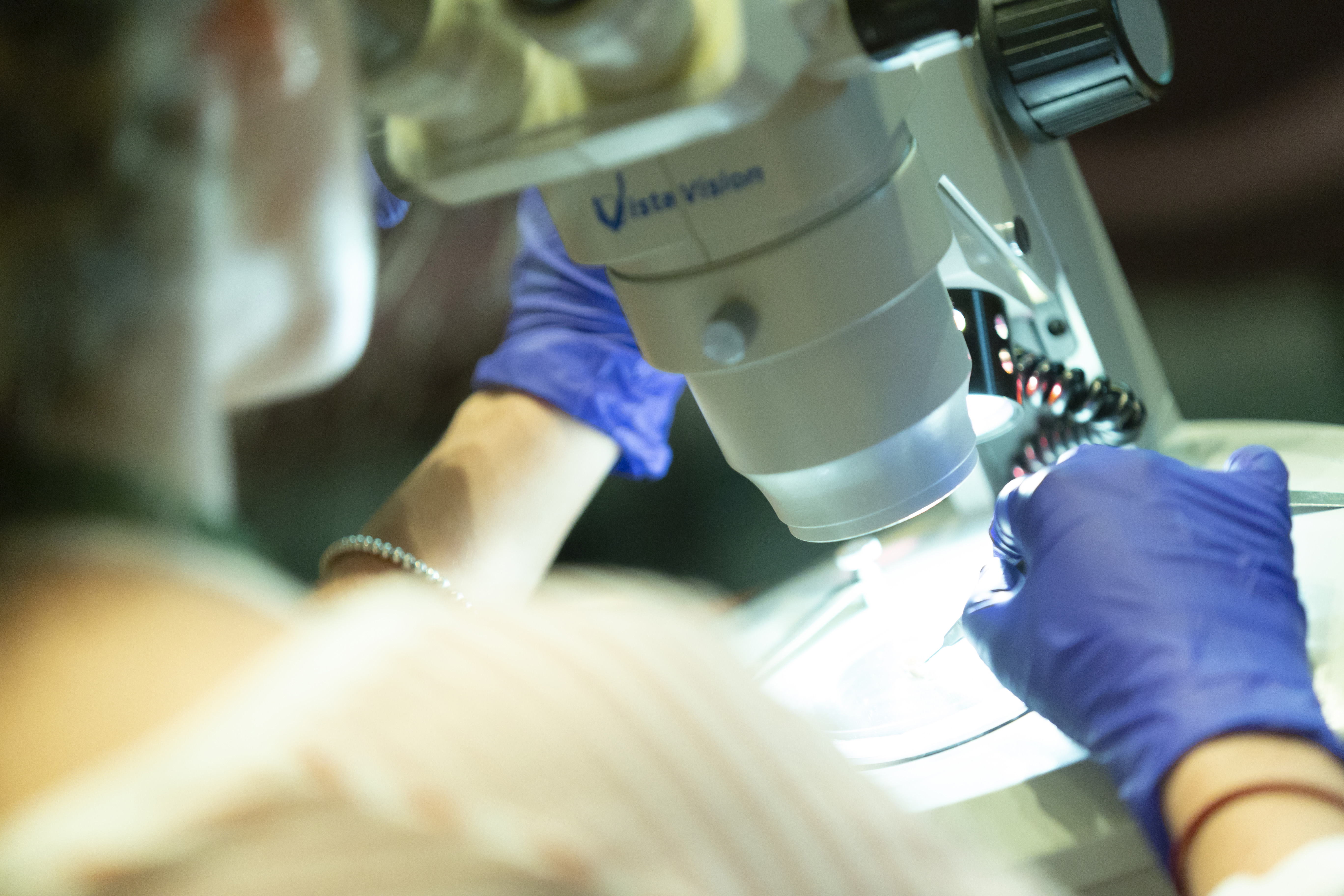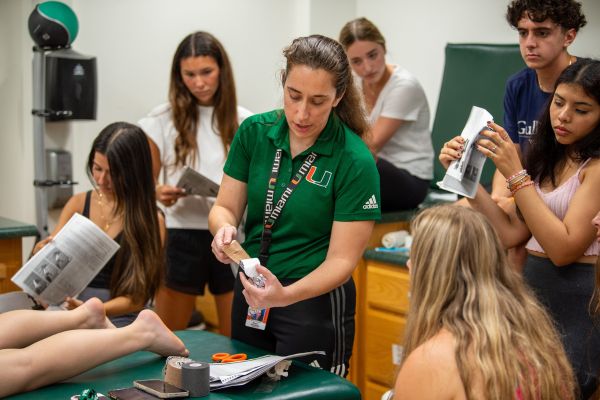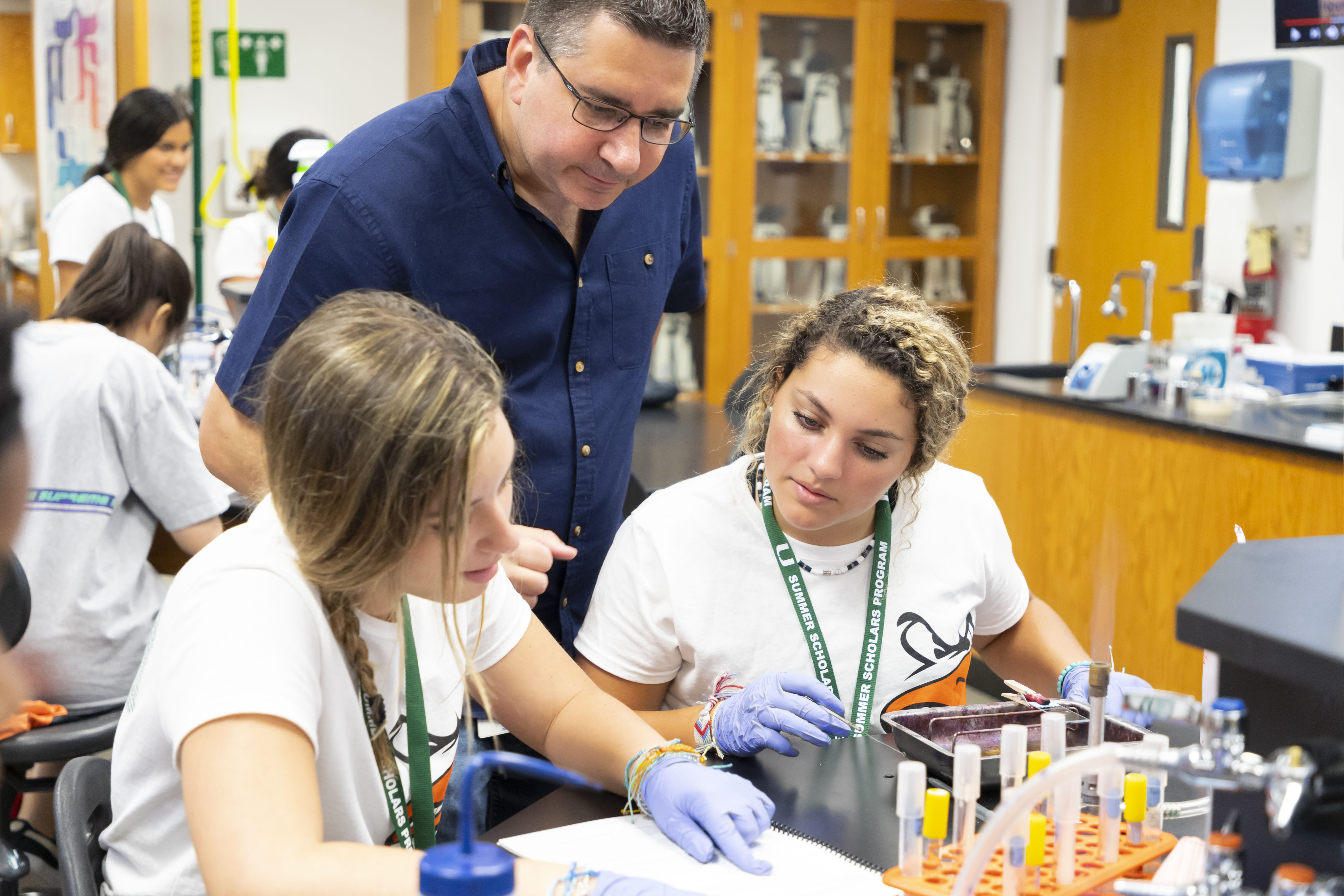Business, Ethics and Leadership
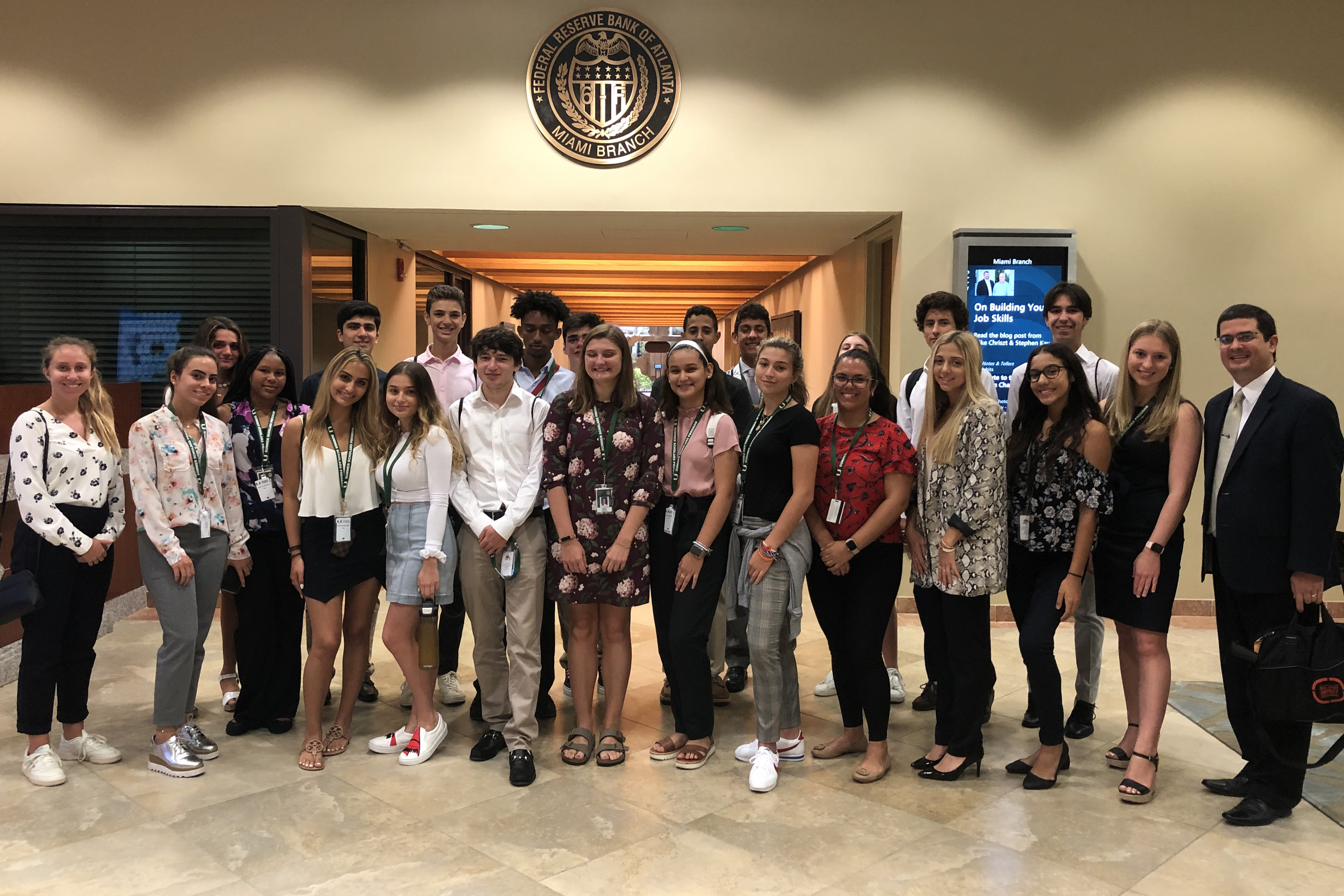
GBM 101. Fundamentals of Business. 3 Credit Hours.
This course is designed to provide a broad introduction to the various fields of business knowledge and that are essential for successful decision making in the global marketplace. Students will be exposed to lectures in the functional areas of business: economics, accounting, finance, and management. In addition to lectures and discussions about some of the core principles in these areas, the curriculum will require students to engage in hands-on activities that will help to familiarize them with the different business fields and decide if a career in business is right for them.
Miami Herbert Business School | Instructor(s): Shannon DeRouselle
GBM 100. Fundamentals of Ethics and Leadership in Business and Law. 3 Credit Hours.
This is a comprehensive course specifically designed to assist high school students focus on building a proper foundation to prepare for college and then law school or graduate school in the future. The course creates opportunities for students to hone their ethical, logical and analytical ways of thinking and become knowledgeable of the workings of the business and legal communities. GBM 100 is a blend of academics, leadership, networking and teamwork that are at the core of a successful transition from high school to college to graduate school.
Miami Herbert Business School | Instructor(s): Elisah Lewis
Prerequisites(s): Algebra
[back to top]
Business of Real Estate
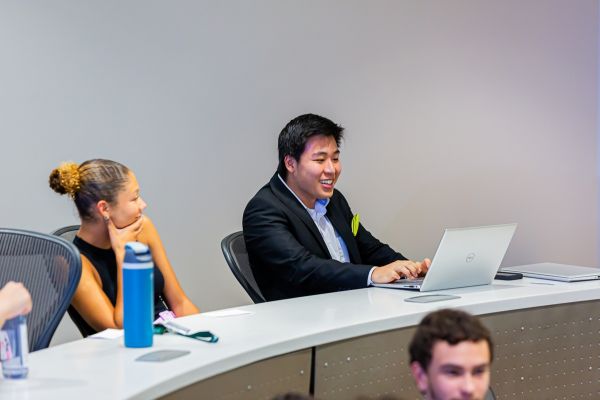
FIN 144. Real Estate Investment Analysis. 3 Credit Hours.
This course covers the fundamentals of commercial real estate. The aim of the course is to give you broad exposure to the landscape of commercial real estate markets. After a discussion of the relation between property prices and rents, the first part of the course is focused on property-level analysis of real estate equity as an investment, especially property valuation. This portion will culminate in a valuation case, based on a proposed development project in downtown Miami. After this, we will look at the fundamentals of real estate debt (mortgages) and equity markets (REITs).
Miami Herbert Business School | Instructor(s): Jason Damm
BSL 102. Contracting in Everyday Business and Life. 3 Credit Hours.
Contracts are the building blocks of business. This course explores both the legal and practical elements of contracting. Topics will include the basics of contract law, the ethical implications of certain contracts, and novel forms of contracting, such as clickwraps and smart contracts. The class will explore the process of entering a contract, from negotiation to execution and beyond. The course methodology offers a problem-solving experience and provides students with an opportunity to develop their analytical and decision-making abilities in a university environment.
Miami Herbert Business School | Instructor(s): Joan Martinez Evora
Prerequisites(s): Algebra
[back to top]
Business, Law, and Society
BSL 104. The Judicial: Understanding Cutting-Edge Legal Cases. 3 Credit Hours.
From Marbury v. Madison to Students for Fair Admissions v. Harvard, case law has shaped the development of our law in the U.S. common law system. This interactive course explores key court cases in their legal and historical context, along with their role in business today. Topics include the fundamentals of the common law system, the judiciary, and the mechanics of a case as it makes its way through the judicial process. The course methodology offers a problem-solving experience and provides students with an opportunity to develop their analytical and decision-making abilities in a university environment.
Miami Herbert Business School | Instructor(s): Vanessa Septien
BSL 105. The Legislative: Exploring the Impact of Law on Business. 3 Credit Hours.
This course offers an exploration of the legislative process in the United States, particularly with respect to business and industries. Students will analyze key statutes in different areas of law, with an aim to understand their history, enactment, and impact on business. Statutes studied may include those in areas such as employment, intellectual property, corruption, antitrust, workplace safety, marketing, environmental law and privacy, among others. The course methodology offers a problem-solving experience and provides students with an opportunity to develop their analytical and decision-making abilities in a university environment.
Miami Herbert Business School | Instructor(s): Don Donelson
Prerequisites(s): 9th and 10th grade English
[back to top]
Business Strategy, Communication, and Leadership
GBM 101. Fundamentals of Business. 3 Credit Hours.
This course is designed to provide a broad introduction to the various fields of business knowledge and that are essential for successful decision making in the global marketplace. Students will be exposed to lectures in the functional areas of business: economics, accounting, finance, and management. In addition to lectures and discussions about some of the core principles in these areas, the curriculum will require students to engage in hands-on activities that will help to familiarize them with the different business fields and decide if a career in business is right for them.
Miami Herbert Business School | Instructor(s): Joan Martinez Evora
BUS 103. The Executive: Presence, Professionalism, and Presentation for Business. 3 Credit hours.
No matter the industry, executive presence and professionalism are key to success. This interactive course will explore the career and professional skills necessary to thrive in the business workplace. Topics include interviewing, clear communication in different contexts, negotiation skills, and professional social media presence. The course methodology offers a problem-solving experience and provides students with an opportunity to develop their analytical and decision-making abilities in a university environment.
Miami Herbert Business School | Instructor(s): Luisa Rosen-Artze
Prerequisites(s): 9th and 10th grade English
[back to top]
Global Business and International Relations
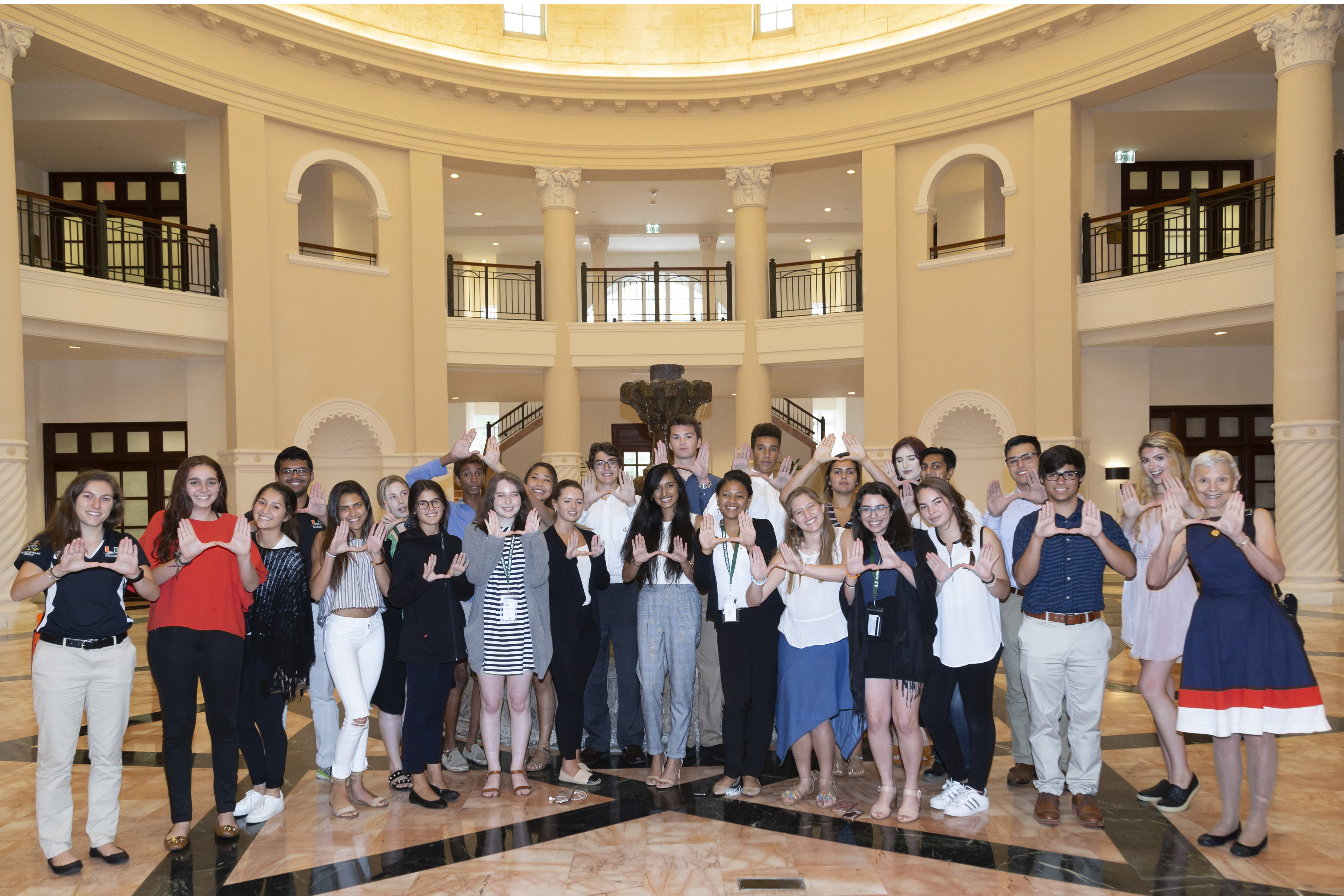
GBM 102. Global Business. 3 Credit Hours.
Miami's strategic location at the crossroads of the Americas provides an exciting setting to explore global business and leadership. Gain an overview of practices followed by organizations and individuals doing business in a global environment. Explore the recent globalization phenomenon – why has it flourished as such? Learn key differences that characterize the various countries involved in the global economy. Review trends, including the rewards and challenges, that affect global trade and the investment environment. Investigate critical concepts – the common strategy and structure of international business and the traits that define a global leader.
Miami Herbert Business School | Instructor(s): Manuel Sicre
POL 203. Introduction to International Relations. 3 Credit Hours.
Introduction to the theory and practice of international relations. Areas covered include: diplomacy, conflict resolution, international institutions and law; great power politics, international political economy, environmental politics, political integration, the evolving state system, and new global challenges. Students have the opportunity to visit a consulate and meet with foreign diplomats in Miami.
College of Arts and Sciences | Dept. of Political Science | Instructor(s): TBD
Prerequisites(s): History
[back to top]
Law: Litigation and the Legal Profession
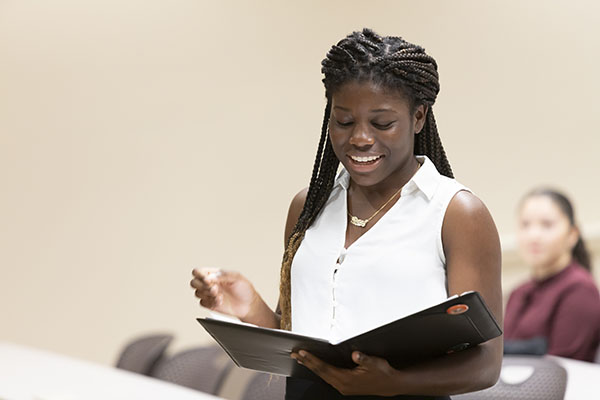
LWU 101. Courtroom 101: Litigation Basics. 3 Credit Hours.
“People of the jury, have you reached a verdict?” Persuading a jury or a judge does not begin in closing argument. Asking for a verdict depends upon all of the evidence, the lawyer’s persuasive ability, and a clear development of the theory of the case. This course will enhance the student’s abilities to participate in mock trials, by incorporating techniques of witness direct and cross examination, exhibits, objections, opening statements and closing arguments. It will incorporate technology in the courtroom, as well as for preparation. The skills acquired will be helpful in almost any persuasion presentation, including lobbying, debate and negotiation.
School of Law | Instructor(s): TBD
LWU 102. Introduction to the Legal Profession: Law, Ethics and Society. 3 Credit Hours.
This course introduces students to the practice of law in the United States from the perspective of the law as a profession that draws heavily on philosophy, sociology and ethics. The course will focus on the basics of attorney client formation, duties and responsibilities of lawyers, regulation of lawyer conduct, basic elements of law practice, managing relationships and many other facets of the attorney’s duties as an officer of the court. The course will be based around the American Bar Association's Model Rules of Professional Conduct and will use excerpts from a problem based casebook. (3 credits)
School of Law | Instructor(s): TBD
Prerequisites(s): 9th and 10th grade English
[back to top]
Money and Marketing: Succeeding in Business
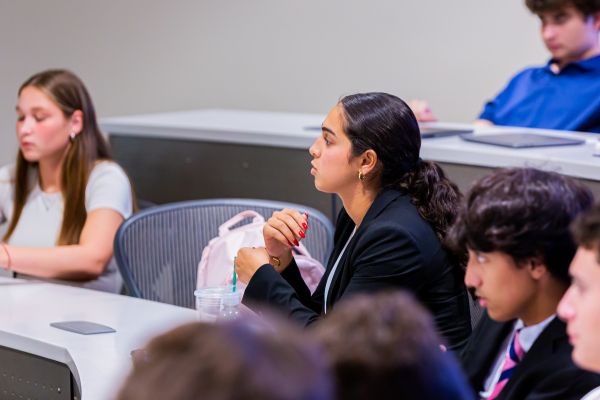
MKT 101. Marketing in the 21st Century. 3 Credit Hours.
This course will introduce you to the new age of Marketing. In a modular format: three modules spread over a period of three weeks, the students will get introduced to the fundamentals of marketing and the exciting world of digital marketing and marketing analytics. Marketing is a vital link between a firm’s consumers and its other stakeholders. During the first module, students will develop an understanding of issues such as the evolution of modern marketing, segmentation, targeting and positioning, marketing research, and consumer behavior. The students will be introduced to some global marketing examples connected to these topics. The second module focuses on digital marketing and branding. Since the digital age has redefined marketing the content will focus on marketing principles in digital and social media marketing. The third module will focus on marketing analytics. Big data, fast computing and clever algorithms have converged to allow managers to convert data into one of their key strategic assets. In response, managers are collecting large volumes of data from diverse sources. To convert data to insights managers must develop the capability to transform data into knowledge through analytics. This has made analytics an important subject for marketing.
This course will serve to allow students to understand marketing practices in the real world. Methods of instruction will include lectures, discussion, analytical problem solving, experiential (involvement) learning, readings and case analysis.
Miami Herbert Business School | Dept. of Marketing | Instructor(s): TBD
BUS 201. Money. 3 Credit Hours.
This course is about money and YOU, regardless of your age. How to earn it, borrow it, and save it. How to make it grow, protect it from liability, defer it from income taxation and invest it. You will also learn how to use it in relation to your own business and how to manage it to meet your personal and business financial independence goals.
This course is for students seeking a practical education on the subject of money and financial wellness. Students will gain a greater sense of proficiency in highly important matters, both from a professional and personal level.
Miami Herbert Business School | Instructor(s): TBD
Prerequisites(s): Algebra
[back to top]
Sport Administration: The Business of Sport
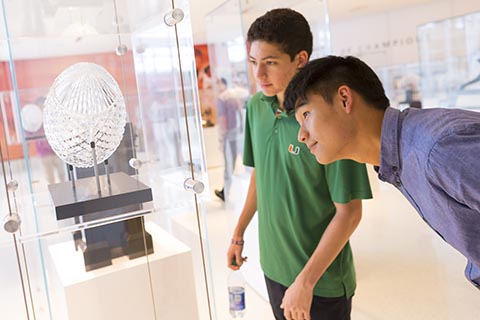
KIN 100. Leadership and Ethics in Sport. 3 Credit Hours.
This course introduces students to the concepts of leadership, motivation, and ethics in the field of sport administration. The course will include and combine theoretical foundations, exercises, activities, and projects designed for practical application of the leadership concepts. In addition, students will be exposed to industry leaders and networking opportunities through a variety of site visits to sport organizations.
School of Education and Human Development | Dept. of Kinesiology & Sport Sciences | Instructor(s): TBD
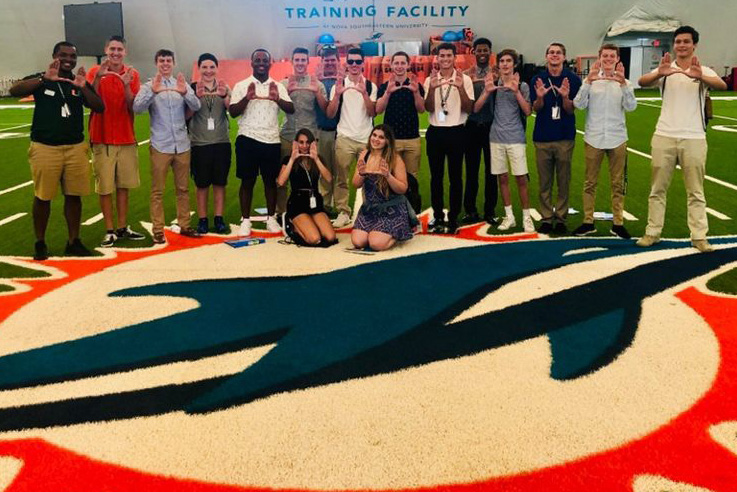
KIN 200. Sport Marketing and Finance. 3 Credit Hours.
The purpose of this course is to introduce students to sport management as a professional endeavor. The class provides a broad overview of sport management by presenting extensive discussions of the foundational aspects of the profession and current topics from the sport industry. Students will have an introduction to the following components of the sport industry: ethics, leadership, communications, marketing, finance, and event management. In addition, the students will have the opportunity to meet with leaders from a variety of collegiate and professional sport organizations. Organizations that have provided executives to speak to the students have included: NASCAR, Miami Dolphins, Miami Marlins, Florida Panthers, Miami Heat, and UM Athletics.
School of Education and Human Development | Dept. of Kinesiology & Sport Sciences | Instructor(s): Paul Resnick
Prerequisites(s): 9th and 10th grade English
[back to top]
The Business of Music
MIN 101. Music Industry. 3 Credit Hours.
This course provides students with an overview of the business fundamentals of the Music Industry and how the industry’s activities impact society. Topics discussed include intellectual property, music publishing, recorded music, licensing, live entertainment, musical products, and marketing in the music industry. The students will also learn about the entertainer's business side, understanding the role of managers, agents, business managers, and attorneys.
Frost School of Music | Dept. of Music Industry | Instructor(s): Guillermo Page
MIN 194. Fundamentals in Music Marketing. 3 Credit Hours.
This course gives students a broad perspective of marketing in the Music Industry, introducing basic marketing concepts and their applications in the music business. Topics covered include understanding basic market segmentation, targeting, branding, and content development. It introduces the many resources available to market artists using social media, digital platforms, and analytical tools.
Frost School of Music | Dept. of Music Industry | Instructor(s): Guillermo Page
Prerequisites(s): 9th and 10th grade English
[back to top]



